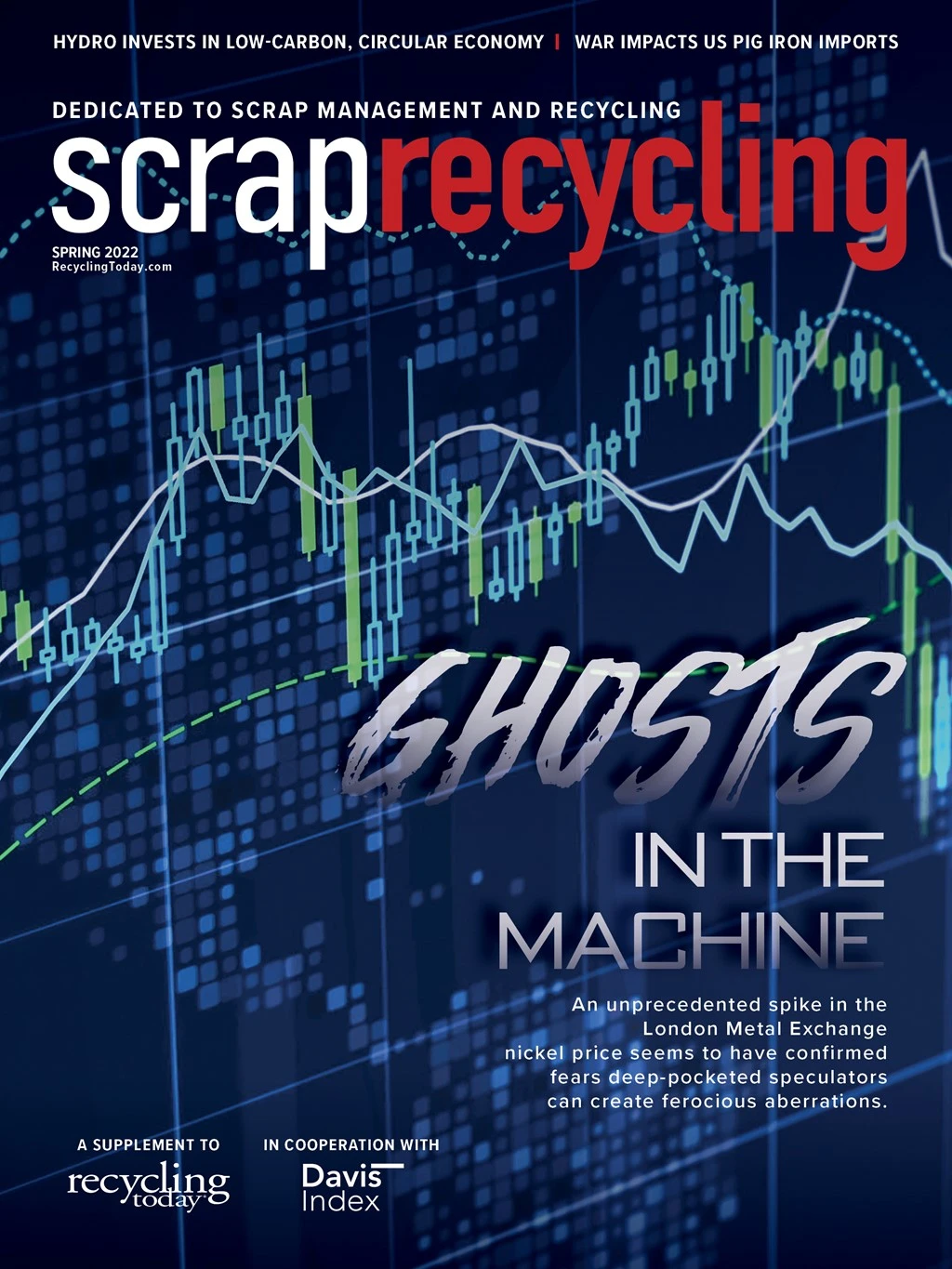
Turkish ferrous scrap and steel product markets were slow at the beginning of 2022, but Russia’s invasion of Ukraine Feb. 24 changed this situation.
In March, Turkish mills began receiving active inquiries for rebar and billet from foreign customers such as Egypt that generally rely on the CIS region because of delivery disruptions in the latter. Moreover, the European Union increased its quota for Turkish rebar following sanctions on this product from Russia. As a result, Turkish sales revived and prices surged in March.
Export prices for Turkish rebar jumped from $700 to $705 per metric ton free on board (fob), actual weight, at the beginning of January to $970 to $990 per metric ton fob, actual weight, at the end of March, reaching $1,000 per metric ton fob actual weight in some sales to European countries. Export prices for Turkish rebar rose by 40 percent in the period under review.

Buoyant steel product sales spurred ferrous scrap purchases in Turkey, and prices for the material followed a similar uptrend. The daily Davis Index for Turkish imports of U.S.-origin heavy melting steel (HMS) 1&2 (80:20) was $457.50 per metric ton cost and freight (cfr) at the beginning of the year. It increased to $509.74 per metric ton cfr by Feb. 24, when Russia invaded Ukraine, then jumped to $670 per metric ton cfr by mid-March. Prices for imported ferrous scrap rose by 46 percent during the period under review.
Turkey imported 2.5 million metric tons of ferrous scrap in January, up 26 percent compared with the same month one year ago. The key suppliers were Ukraine (340,000 metric tons), the U.S. (312,000 metric tons) and Russia (218,000 metric tons). Imports from Ukraine increased 38 times, while imports from the U.S. grew by 60 percent. Imports from Russia fell by 11 percent.
Exports from Ukraine are not expected to continue, and further supplies from Russia to Turkey are uncertain as the country tries to focus on its domestic market. The Russian government raised the export duty on ferrous scrap from a minimum level of 70 euros per metric ton to 100 euros per metric ton starting Jan 1. This put pressure on recyclers, and some of them suspended export operations. But, after prices in Turkey exceeded $600 per metric ton cfr, Russian sellers decided to return to the market.

As a result, the Russian government began mulling a higher duty. The final decision is yet to be approved as of early April, but the Russian Ministry of Economic Development’s subcommittee has offered to increase the export duty on ferrous scrap to 290 euros per metric ton beginning May 1 for three months. It should be noted that a quota of 810,000 metric tons to 830,000 metric tons of ferrous scrap can still be shipped abroad with the export duty at 100 euros per metric ton and will be applicable under the new tariff. The quota is anticipated to be distributed among suppliers from different Russian regions, and the new duty of 290 euros per metric ton will be applied to excess tonnages.
In February, Turkey’s ferrous scrap imports from Russia and Ukraine dropped to 5,000 metric tons and 2,000 metric tons, respectively. Turkey could face serious problems with raw materials supply, not only ferrous scrap but also pig iron. Russia and Ukraine supplied 167,000 metric tons of pig iron to Turkey in January through February, which accounts 70 percent of the total volume at 239,000 metric tons.
Asian ferrous scrap bulk markets followed the Turkish uptrend. Thus, the daily Davis Index for U.S.-origin HMS 1&2 (80:20) in South Korea surged to $680 per metric ton cfr at the end of March from $546 per metric ton cfr at the beginning of January. Prices for imported scrap in Asia increased by 25 percent during the period under review.

Explore the Spring 2022 Scrap Recycling Issue
Check out more from this issue and find your next story to read.
Latest from Recycling Today
- Orion ramping up Rocky Mountain Steel rail line
- Proposed bill would provide ‘regulatory clarity’ for chemical recycling
- Alberta Ag-Plastic pilot program continues, expands with renewed funding
- ReMA urges open intra-North American scrap trade
- Axium awarded by regional organization
- Update: China to introduce steel export quotas
- Thyssenkrupp idles capacity in Europe
- Phoenix Technologies closes Ohio rPET facility





